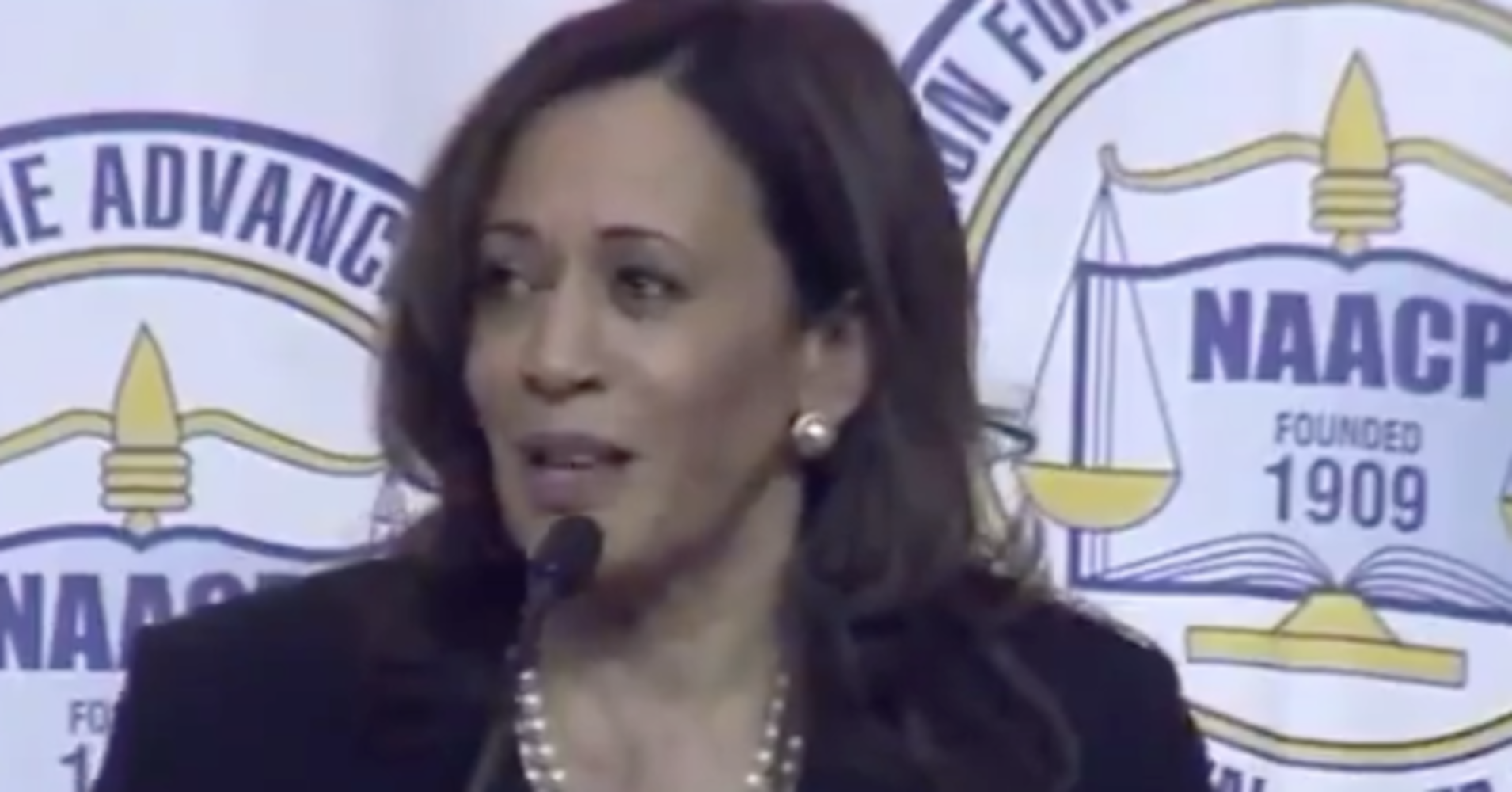[ad_1]

Sen. Kamala Harris (D-Calif.), a 2020 presidential contender, pointedly addressed the issue of “electability” ― or which type of candidate is most likely to beat President Donald Trump.
In a speech at the NAACP Freedom Fund dinner in Detroit on Sunday, Harris said, “There has been a lot of conversation by pundits about ‘electability’ and who can speak to the Midwest… and too often their definition of the Midwest leaves people out.”
Harris suggested that those left out of the conversation around electability, notably in the Midwest, are people of color and women.
“It leaves out people in this room who helped build cities like Detroit,” Harris said. “It leaves out working women who are on their feet all day.”
“The conversation too often suggests certain voters will only vote for certain candidates,” she added. “And it is shortsighted, it is wrong and the voters deserve better.”
Harris, who is black and Asian, the daughter of immigrants from Jamaica and India, is one of more than 20 Democratic candidates in the 2020 presidential race so far. It’s the most diverse field of presidential contenders ever, with several women and people of color running, including Sens. Elizabeth Warren (D-Mass.), Kirsten Gillibrand (D-N.Y.) and Cory Booker (D-N.J.).
Yet in HuffPost’s polling in late March, former Vice President Joe Biden ― who had yet to announce his candidacy at the time ― was the only contender the majority of Democratic voters (69%) named as capable of beating Trump in the presidential election.
That same poll found Democratic voters were placing a lot of value on the question of who is most “electable,” with more than half of Democrats and Democratic-leaning voters saying they believed it was more important to nominate the candidate most likely to win, and only 36% placing more importance on ideology, or whose positions on the issues came closest to theirs.
The question of electability has often been wielded by people arguing that a white, more moderate, establishment candidate ― like Biden, for instance ― would be needed to win back white voters who fled the party in recent years, who in turn would be needed to win the election.
But who is most electable ― or most likely to beat Trump, in this case ― is far from clear.
There’s no consensus so far ― and likely will never be ― among Democratic voters or party operatives over what type of candidate is best equipped to defeat Trump.
When Democratic voters consider demographics as a factor in electability, they’re more likely than not to think candidates who veer from the standard-issue white male politician are at a disadvantage. Three in 10 Democratic voters in the March HuffPost/YouGov poll thought that most of the electorate would be less likely to vote for a female candidate because of her gender, compared with just 4% who think a male candidate would face a similar disadvantage. Similarly, 28% thought a nonwhite candidate would face more difficulty with voters.
“Who are these people who get to determine this? And what are their backgrounds and what is their lens?” Yvette Simpson, the president of the progressive group Democracy for America, told HuffPost last month on the issue of electability in 2020. “I think for a long, long time people have convinced themselves and others that in order to win in certain places or to win at all you have to be a white guy, and the reality is that can’t be further from the truth.”
[ad_2]
Source link

